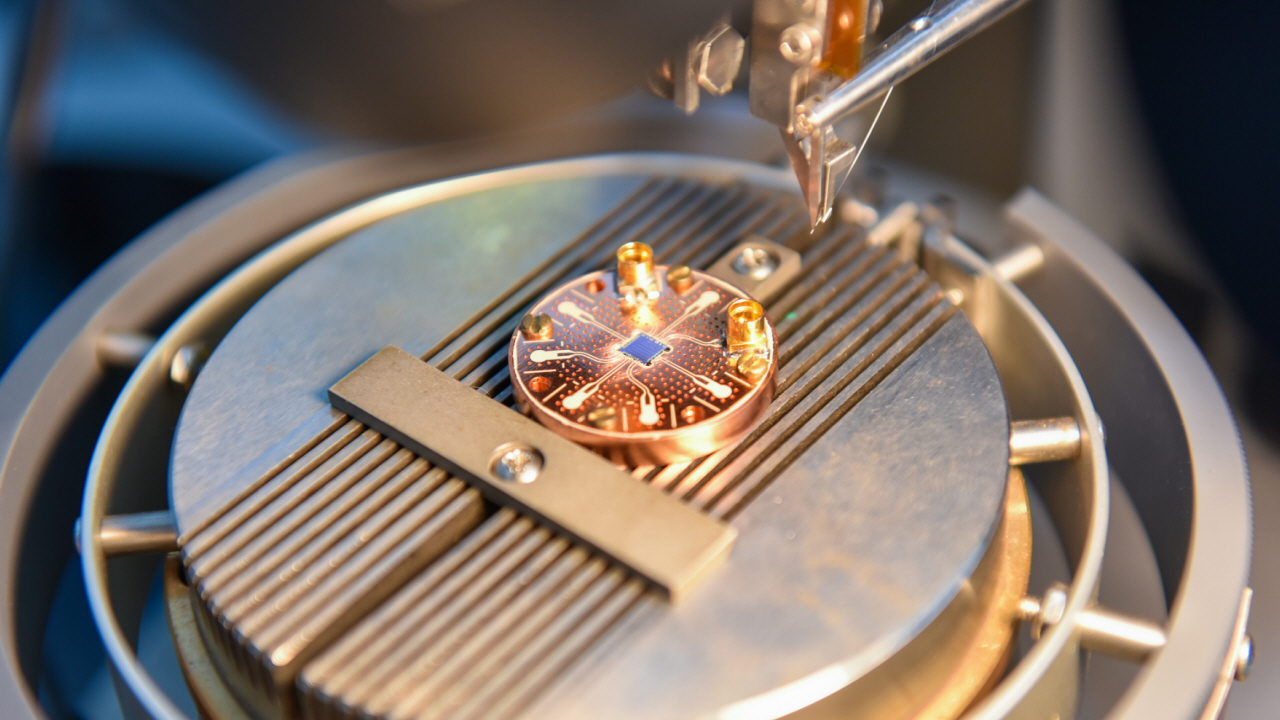
MISIS – March 12, 2018: Physicists from the NUST MISIS Laboratory of Superconducting Metamaterials and two Institutes of the Russian Academy of Sciences have created the world’s highest quality signal booster for quantum computers. The device can also be used in radio telescopes and other devices that work with super-weak radio emission.
The qubit state is one of the most difficult tasks when creating a quantum computer and the challenge is not only due to the small energies of readable photons but also the strange noises which change the system state. A signal amplifier which allows scientists to better read information about photons is an integral part of such systems. However, it usually brings a large part of noises that reduce the accuracy of the computations. That is why, to increase the probability of getting the correct solution, scientists have to conduct thousands of similar computations. Despite the fact that it is much faster than in regular computers, to reduce the number of computations and to further improve their speed, researchers are working on improving the accuracy of the computations. Hence why the creation of an amplifier with a minimal noise level has become one of key tasks of creating quantum computers. Several world leading laboratories have already offered their solutions but there is no way to utilize these developments. Now, Russian scientists have also managed to get a better grasp of this technology.
“For the first time in the world, scientists from the NUST MISIS Laboratory of Superconducting Metamaterials, led by Professor Alexey Ustinov, together with their colleagues from the Institute of Solid State Physics and the Institute of Radio-Engineering & Electronics, have developed a superconducting amplifier of the signal from a qubit; this amplifier emits the lowest possible noise level. This world-class development has commercial potential: the created amplifiers can be used in radio telescopes”, said Alevtina Chernikova, Rector of NUST MISIS.
And according to Professor Karpov, it is impossible to create a completely soundless amplifier because even a vacuum makes a background noise: from time to time a pair of particle-antiparticles is born, and subsequently dies there. These vacuum fluctuations cause chaos in the system. That is why the minimum noise level that can be reached while creating superconducting elements is equal to the vacuum. This level is called the quantum limit. NUST MISIS scientists have managed to achieve it by replacing the material — from which the amplifier is created — with a superconductor.
“These amplifiers can be used not only in quantum computers but also in other systems from the field of quantum informatics, where the reading mechanism for the quantum state of the system is used. For example, in sensors of space radiation on radio telescopes. As it is impossible to purchase foreign analogues, this development will be in commercial demand at least throughout Russia”, added Karpov.
END
